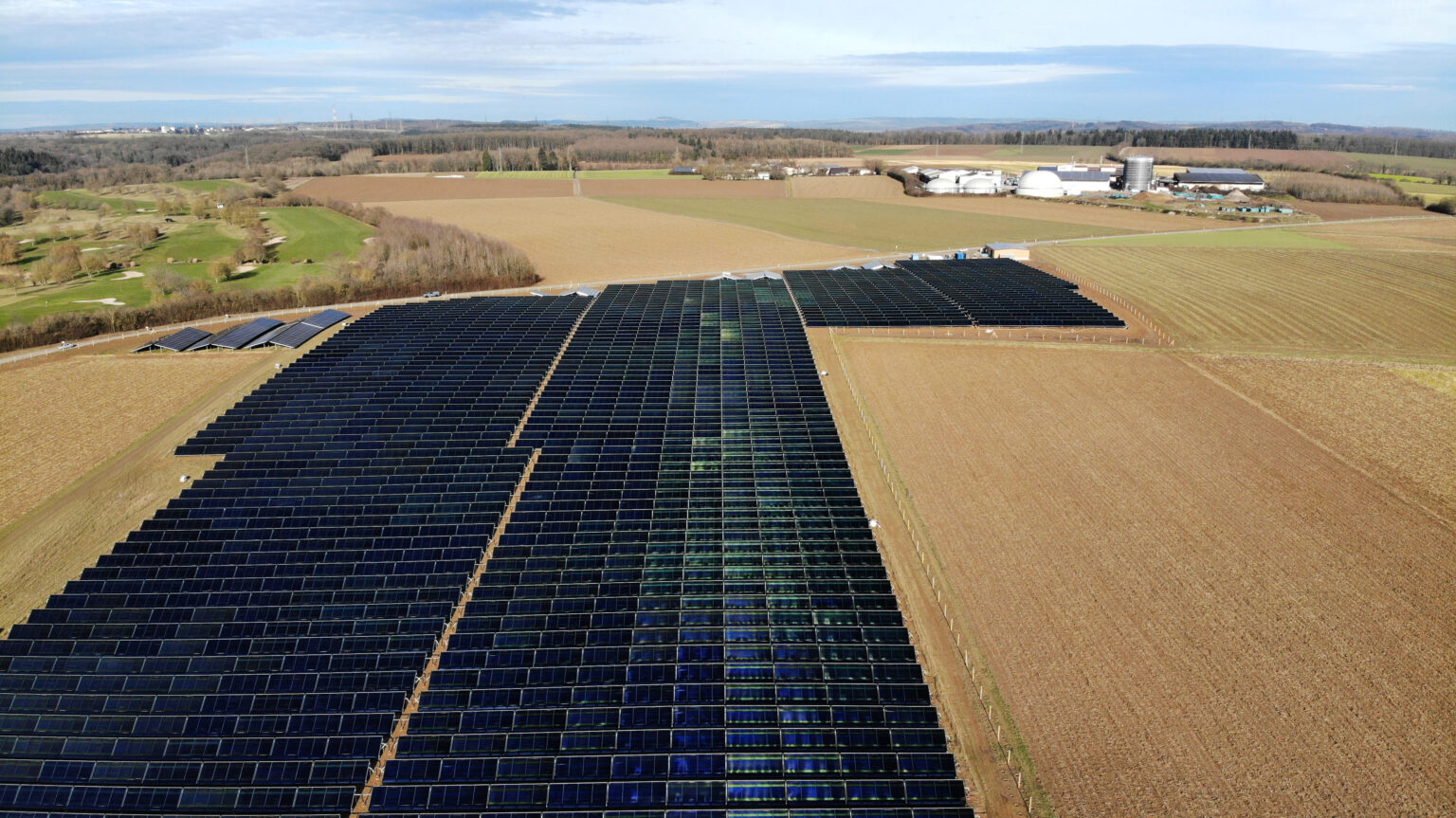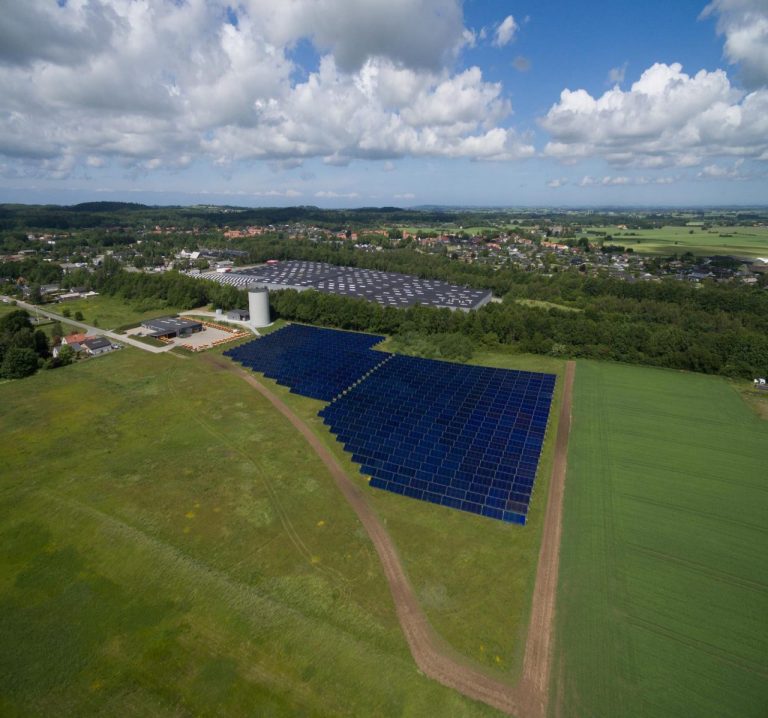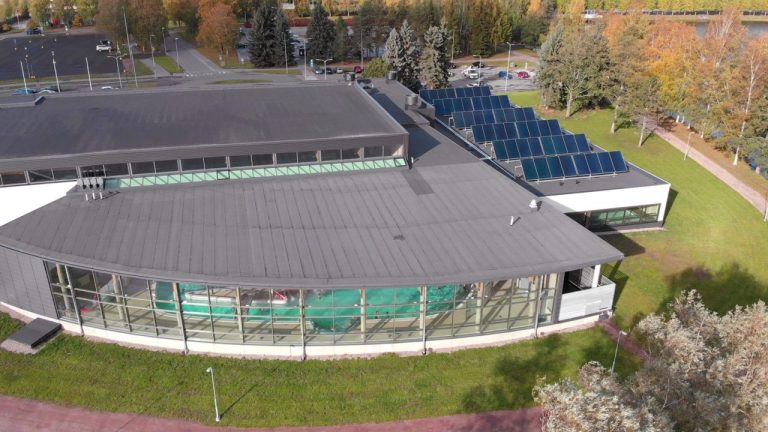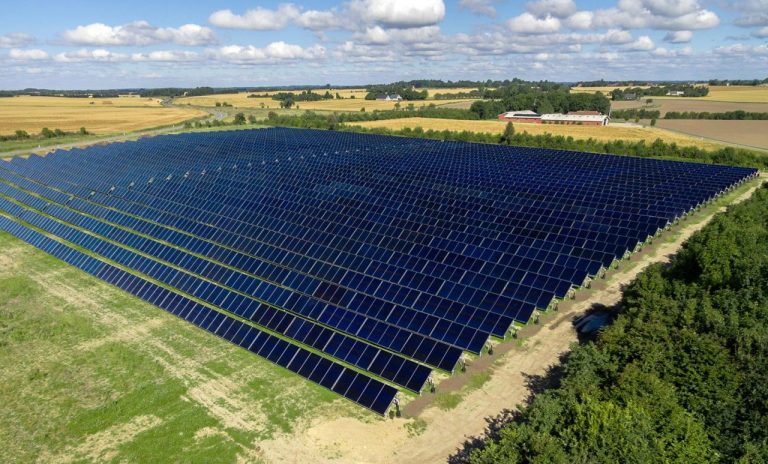
UNDER CONSTRUCTION
Bad Rappenau, Germany (largest flat plate collector plant in Germany)
Summa Energy has been selected as general contractor to build a +20 MW solar thermal system on behalf of Bauer Holzenergie GmbH for its district heating network, which supplies households and an industrial process for drying fruits with healthy heating. Only about 1,800 pieces of Savo 16S large scale high performance flat plate collectors are sufficient to getting combined with an 8,000 m³ heat storage tank and
provide carbon free heat for the needs of all connected consumers.
Additionally, a PV system will be built on site to generate the electricity consumed by the solar pumps, thus
unburdening the local power grid.

FORS A/S is an energy company owned by three Danish municipalities. Their district heating plant in Jyderup has about 900 customers and produces about 5000 MWh solar thermal energy per year. For the rest of its energy production, the plant uses two gas boilers with 7 MW thermal capacity and two gas engines with 6 MW electrical capacity.
In Jyderup, the collector field is a so-called hybrid field, with both single and double glazed collectors. The single glazed collectors are in the cold end of the collector rows and increase the low temperature as rapidly as possible, while the double glazed collectors are located in the warm side of the collector rows where it is more important to reduce the heat losses. The collector field also has double stanchions which allows for two collector rows to connect to one and the same pipe and thereby save costs and thermal losses.

Swimming halls are very well suited for solar thermal production. Typically, their heat consumption is big and the required temperature level tends to be relatively low. In such cases solar thermal collectors are operating with a very high efficiency.
However, quite often swimming halls are closed some time of the year and summertime closure may mean extra challenges for solar heat supply.
For Hämeenlinna swimming hall Savosolar solved this issue by feeding surplus solar energy in summer to the nearby district heating network. Thus, the solar system is producing heat all days and depending on the swimming hall’s actual heat demand, the facility is either a district heating provider or a consumer.

Jelling Varmeværk is a Danish district heating plant in the historical village of Jelling, which is the former home of the Viking Chief Harald Bluetooth. Apart from the 20,125 m² collector field, Jelling Varmeværk produces its energy from a 1 MW wood chip boiler, a 1.5 MW absorption heat pump and 2 gas CHP engines with a total capacity of 8 MW heat and 6 MW electricity.
The first solar system was commissioned in summer 2016 and during its first week of operation, the collector field set a new Danish record by producing nearly 5 kWh/m² in a day.
The collector field in Jelling has double stanchions which allows for two collector rows to connect to one and the same pipe and thereby save costs and thermal losses. The annual solar thermal production is about 11,200 MWh, which covers over 25% of the town’s energy need for heating.
In 2018, Jelling Varmeværk placed a second order with Savosolar for the 4,836 m² extension of the successfully running existing collector field. The extension will be installed in first half of 2019 and it will further grow the fraction of district heating produced with solar energy.
“We chose Savosolar as our collector supplier due to their high efficiency in combination with their innovative solutions. They enable us to have an environmentally friendly, stable and low price for heating over the next 20 years. Collectors have integrated hose connections which means that they disturb the landscape as little as possible in an historic village of Jelling. The collectors can also follow the curvature of the landscape which means that we didn’t have to level out the ground of the field.”